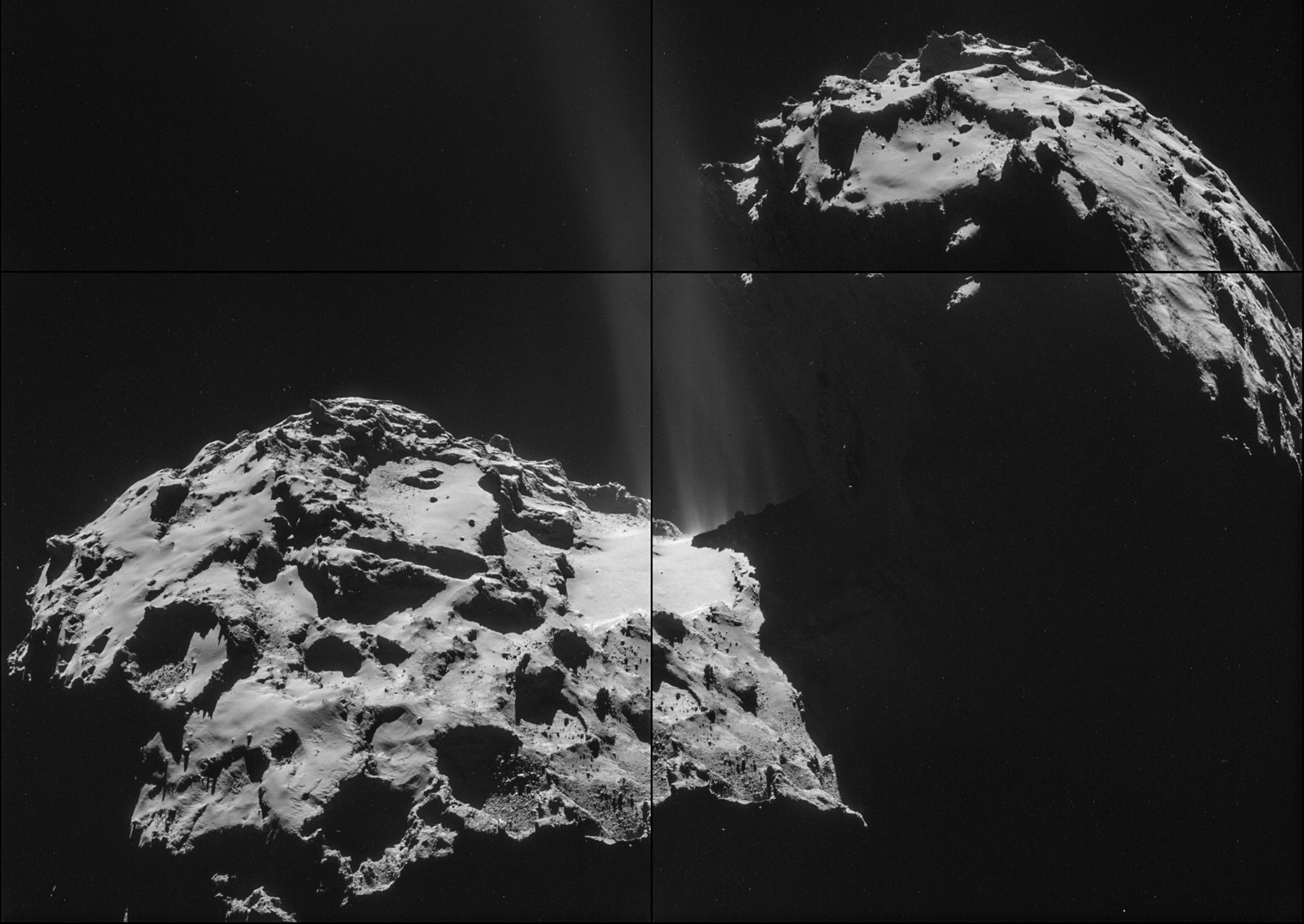While you can’t smell in space — there is no medium to carry the molecules, the same reason you can’t hear things — you can certainly detect what molecules are emanating from comets and other solar system bodies. A new analysis of Comet 67P/Churyumov-Gerasimenko by the orbiting Rosetta spacecraft thus found a rather pungent chemistry combination.
The spacecraft detected hydrogen sulphide (the smell of rotten eggs), ammonia and formaldehyde with traces of hydrogen cyanide and methanol. But compared to the amounts of water and carbon monixide 67P has, these molecule concentrations are quite miniscule.
“This all makes a scientifically enormously interesting mixture in order to study the origin of our solar system material, the formation of our Earth and the origin of life,” stated the University of Bern’s Kathrin Altwegg, from the center of space and habitability.
“And after all: it seems like comet Churyumov was indeed attracted by comet Gerasimenko to form Churyumov-Gerasimenko, even though its perfume may not be Chanel No 5, but comets clearly have their own preferences.”
More seriously, astronomers do say that at three astronomical units (Earth-Sun distances) from the Sun, the comet is emitting more molecules than expected. The next step will be to compare Rosetta’s data with ground-based data of other comets to see if this is common.
Source: University of Bern

